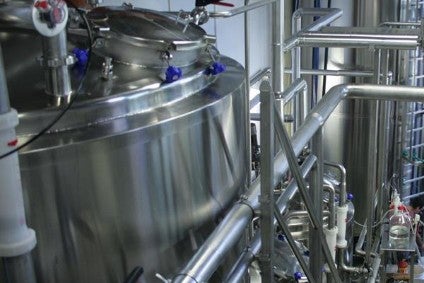
Eighty years after nylon’s first commercial production, clean manufacturing technology firm Genomatica has achieved what it says is a new milestone for the material.
The company has produced the “world’s first” renewably-sourced tonne of the key ingredient for nylon-6, made from plants instead of crude oil.
Nylon is the first totally synthetic fibre to be made into consumer products, including apparel, but is responsible for around 60m tonnes of greenhouse gas emissions per year through traditional production.
Genomatica’s innovation, alongside partner and European nylon producer Aquafil, will produce 100% renewably-sourced nylon that delivers equivalent performance to the conventional nylon, but with lower environmental impact.
This bio-based nylon has the potential to reduce greenhouse gas emissions in a US$10bn global industry that produces over 5m tons of nylon-6 per year, Genomatica says.
“DuPont’s landmark production of nylon eighty years ago introduced a highly versatile staple material to the apparel, textile and engineering product industries,” says Christophe Schilling, CEO of Genomatica. “It’s a terrific material, and now, with the power of biotechnology, we can reinvent where it comes from. This is a major step forward in offering a new, more sustainable future with a better nylon for the full range of industries it serves.”

US Tariffs are shifting - will you react or anticipate?
Don’t let policy changes catch you off guard. Stay proactive with real-time data and expert analysis.
By GlobalDataWith the rise of fast fashion and the ongoing demand for nylon-based products, more sustainably sourced nylon ingredients are essential to reducing the industry’s environmental impacts. The Ellen MacArthur Foundation echoed this sentiment in its 2017 report: ‘A New Textiles Economy’, which cited making effective use of resources and moving to renewable ingredients as one of four core ambitions to realise this vision of a new global textiles system.
Genomatica’s technology to make a naturally sourced nylon is made possible by fermentation — similar to making beer. The company engineered a microorganism and production process that ferments the sugars found in plants to make the chemical intermediate for nylon-6. This milestone marks Genomatica’s successful scaling of this process to produce one tonne of the intermediate. The chemical is then converted into nylon-6 polymer chips and yarn by Aquafil in Slovenia.
Aquafil was the first to join Genomatica’s programme, bringing funding support and nylon-related chemical, quality and market expertise. Additionally, Project Effective, a consortium with 12 partners including major brands like H&M, Vaude, Carvico and Balsan, was formed to drive the production of more sustainable bio-based fibres for widely-used consumer products made from renewable feedstocks.
“Ninety-five percent of Americans think sustainability is a good goal and we’re seeing consumers demand more sustainable products,” Schilling adds. “Our technology provides brands with a solution to meet this consumer demand for better-sourced products.”



